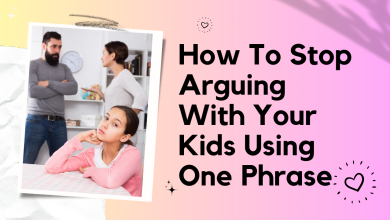15 Things to Never Tease Your Child About
Teasing a child, even playfully, can have long-lasting effects on their emotional well-being and self-esteem. What might seem harmless to a parent could be deeply hurtful to a child. Children are impressionable, and constant teasing can undermine their confidence and trust. To foster a positive environment and support healthy development, here are 15 critical things parents should avoid teasing their children about.
1. Physical Appearance
Children are naturally sensitive about their physical traits, whether it’s their height, weight, facial features, or any perceived imperfections. Teasing them about their appearance can lead to body image issues, eating disorders, or a lack of self-confidence.
Why It Matters:
Children internalize these remarks, and they may start viewing themselves negatively. A child teased for being “too short” or “too chubby” might carry those insecurities into adulthood.
Alternative Approach:
Celebrate your child’s unique traits and focus on their inner qualities, such as kindness, creativity, or resilience.
2. Academic Performance
Mocking your child for struggling in school or comparing their grades to siblings or peers can harm their motivation and self-worth. Academic achievement varies, and teasing only adds unnecessary pressure.
Why It Matters:
Teasing about grades can create a fear of failure, leading to anxiety or disengagement from learning.
Alternative Approach:
Encourage effort over results. Say, “I’m proud of how hard you worked on this,” instead of focusing solely on outcomes.
3. Speech and Language
Children who struggle with speech, have a stutter, or mispronounce words may already feel self-conscious. Teasing them about it can amplify their discomfort and make them hesitant to speak up.
Why It Matters:
It may discourage communication and damage their social confidence.
Alternative Approach:
Be patient and supportive. Encourage speech therapy if needed, and model correct pronunciation without making a big deal of their mistakes.
4. Emotional Sensitivity
Calling your child “too sensitive” or mocking them for crying can invalidate their feelings. It sends a message that their emotions are not important or acceptable.
Why It Matters:
Dismissing emotions can lead to suppressed feelings and difficulty managing emotions later in life.
Alternative Approach:
Acknowledge their emotions and teach healthy coping mechanisms. For example, say, “It’s okay to feel upset. Let’s talk about it.”
5. Personal Interests and Hobbies
Teasing your child for liking certain activities, toys, or hobbies, especially if they defy traditional gender norms, can stifle their creativity and sense of identity.
Why It Matters:
Children need to explore their interests without fear of judgment to build confidence and self-expression.
Alternative Approach:
Support their passions and celebrate their enthusiasm, even if it’s different from your own preferences.
6. Friends or Social Circle
Mocking your child’s friends or the way they interact with others can hurt their social confidence and make them question their ability to form relationships.
Why It Matters:
Teasing about friendships might make your child feel isolated or hesitant to trust their social instincts.
Alternative Approach:
Encourage healthy friendships and let your child know you’re there for guidance without judgment.
7. Physical Abilities
Whether your child struggles with sports, coordination, or physical challenges, teasing them about their abilities can make them feel inadequate or embarrassed.
Why It Matters:
It can discourage them from trying new activities or developing a healthy relationship with physical fitness.
Alternative Approach:
Encourage effort and progress, praising their persistence and willingness to try, regardless of results.
8. Shyness or Introversion
Teasing a shy or introverted child for not being outgoing can make them feel misunderstood or flawed. Every child has a unique personality and social comfort level.
Why It Matters:
Pushing them to change can cause anxiety or make them retreat further into their shell.
Alternative Approach:
Respect their need for quiet time while gently encouraging social interaction at their own pace.
9. Physical Development
Puberty and growth spurts are sensitive times. Joking about their changing voice, body hair, acne, or body odor can cause embarrassment and shame.
Why It Matters:
Children already feel self-conscious during this phase. Teasing compounds their insecurities.
Alternative Approach:
Provide guidance and support with a reassuring tone. Normalize the changes they’re experiencing by saying, “This happens to everyone at your age.”
10. Fears and Phobias
Mocking a child for being afraid of the dark, heights, or animals can make them feel invalidated and ashamed. Fears are a natural part of development.
Why It Matters:
Teasing can make fears worse or prevent your child from opening up about what scares them.
Alternative Approach:
Help them gradually confront their fears with patience and encouragement.
11. Mistakes or Failures
Teasing your child about making mistakes can discourage risk-taking and instill a fear of failure. Mistakes are essential for learning and growth.
Why It Matters:
A child who is mocked for failure may avoid challenges altogether.
Alternative Approach:
Focus on the lesson learned from the mistake and reassure them that everyone fails sometimes.
12. Family Resemblances or Differences
Comments like “You got your dad’s nose” or “You’re nothing like your brother” may seem harmless but can make a child feel inadequate or self-conscious.
Why It Matters:
Children want to feel accepted for who they are, not compared to others.
Alternative Approach:
Emphasize their individual strengths and traits that make them special.
13. Clothes or Personal Style
Mocking your child’s choice of clothing or hairstyle can make them feel judged and stifle their self-expression.
Why It Matters:
Teasing about their appearance can lead to low self-esteem and reluctance to explore their identity.
Alternative Approach:
Support their choices while offering constructive feedback if necessary.
14. Their Family Role
Teasing a child for being the “baby” of the family or labeling them as the “troublemaker” can limit their sense of identity and pigeonhole them into specific roles.
Why It Matters:
Labels can become self-fulfilling prophecies, affecting how they see themselves and behave.
Alternative Approach:
Encourage your child to explore their interests and strengths without confining them to a specific role.
15. Comparing Them to Their Peers
Statements like, “Why can’t you be more like your cousin?” or “Your friend always gets better grades” can make a child feel inadequate.
Why It Matters:
Comparison fosters resentment and lowers self-esteem, making your child feel like they’ll never measure up.
Alternative Approach:
Focus on their individual journey and achievements, emphasizing that everyone progresses at their own pace.
Why Teasing Hurts More Than You Think
Teasing might seem harmless in the moment, but it often leaves deeper scars than parents realize. It can:
- Damage Self-Esteem: Children may internalize negative messages about themselves.
- Harm Parent-Child Relationships: Trust and communication can be eroded when a child feels belittled.
- Encourage Bullying Behavior: Children might replicate teasing behavior with peers, perpetuating a cycle of negativity.
How to Foster a Positive Environment
- Use Encouraging Words: Replace criticism with constructive feedback.
- Practice Empathy: Understand your child’s perspective and validate their feelings.
- Model Positive Behavior: Show kindness, patience, and acceptance in your interactions.
- Apologize When Needed: If you accidentally hurt your child’s feelings, acknowledge it and apologize sincerely.
Conclusion
Raising a confident and emotionally healthy child requires a foundation of love, respect, and support. By avoiding these 15 areas of teasing, parents can create a safe environment where children feel valued and empowered. Every child deserves to grow up feeling accepted for who they are, free from unnecessary criticism or judgment.
Parenting is a journey, and with mindful communication, we can nurture a generation of resilient and positive individuals. Let’s focus on building them up, not tearing them down.






